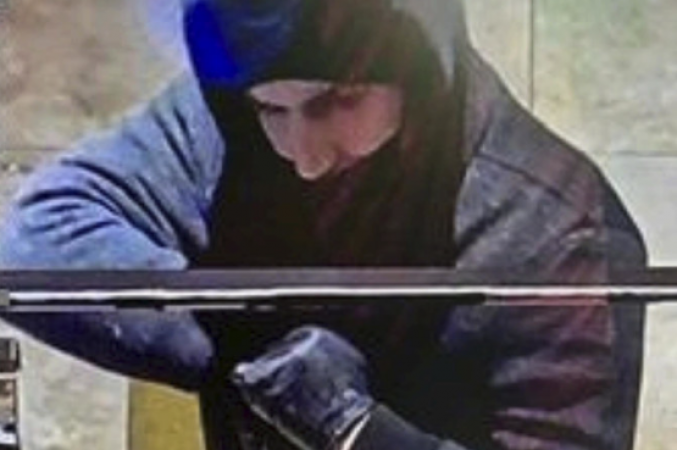
Vegas: In a series of casino robberies, a Las Vegas police officer is accused of stealing close to $165,000, and his trial is scheduled to start on Monday. Prosecutors have portrayed him as a gambling addict who became desperate due to mounting debt.
According to the prosecution, 35-year-old Caleb Rogers committed three robberies over the course of four months while carrying a weapon that had been provided by the police.
Richard Pocker, Rogers' attorney, argued that the government's evidence linking Rogers to two of the robberies is insufficient. He claimed that two people, including Rogers' brother, were under pressure to identify him as the suspect in the robberies by the FBI and detectives from the Las Vegas Metropolitan Police Department in order to end the investigations.
In the first two robberies that took place between November 2021 and January 2022 at casinos away from the Las Vegas Strip, Rogers made off with more than $85,000 while his police colleagues spent months trying to catch the thief, according to investigators and prosecutors.
Also Read: How to Use a QR Code to Transfer WhatsApp Chat History on Android or iOS
In a third robbery at the Rio All-Suite Hotel & Casino in February 2022, Rogers came within $79,000 of taking an additional $79,000, but security guards detained him outside after a brief struggle, according to authorities.
Authorities claimed that the robber's strategy was essentially the same in all three crimes. He was dressed in dark clothing, a face mask, and black latex gloves. He put the cash in a bag under his jacket after the cashiers handed it over. Then, according to a criminal complaint, the suspect with the "unique gait" ran back to his car while limping due to "a problem with his leg."
Casino heists are challenging to pull off, according to Mehmet Erdem, a professor at the University of Nevada, Las Vegas, who specialises in hotel and casino operations.
"The chances you get caught and are identified is very high," he said, citing the combination of strong casino security teams with uniformed guards and plainclothes officers and advancements in security technology like facial recognition software and high-definition cameras.
At the time of the robberies, Rogers had served as a patrol officer for the Las Vegas metro police for seven years. According to a department spokesperson, he is still employed but is on unpaid leave "without police powers" while awaiting the resolution of the criminal case.
Also Read: Red Sea Global adds 750k solar panels as a major step forward for the drive towards renewable energy
Casino cashiers, security personnel, and Josiah Rogers—who recognised his brother in surveillance footage from the first two robberies—will all be called to testify, according to prosecutors who announced their plans last week. Josiah Rogers will also be given immunity from prosecution.
According to court records, Caleb Rogers used his brother's car in one of the robberies and gave him instructions to get rid of it shortly afterward. Rogers was denied bail and has been in custody since his arrest on four charges.
In the third alleged robbery, Rogers allegedly parked an unregistered minivan outside the casino and drove inside as the sportsbook staff was getting ready to open just before 7 a.m. According to a criminal complaint, he had body armour underneath his clothes and was carrying a department-issued revolver with a yellow sticker covering its serial number.
He jumped over the counter and shoved one of the two cashiers who was putting money into registers out of a plastic bag containing $119,000 while yelling that he had a gun. The complaint states that as he stuffed cash into a bag tucked inside his jacket, loose bills floated onto the casino floor.
Just as the suspect reached the casino's exit, a group of security officers caught up to him. Before one of the guards grabbed the gun, he drew his gun and allegedly asked the others if they would "be shot over this."
Also Read: Saudi Arabia and France agree to cooperate in the energy sector
Authorities claim that Rogers revealed his department personnel number to the responding officers, which is "a way police officers commonly identify themselves to one another."
According to the complaint, a detective later questioned Rogers about whether anything could have been done to stop the robberies.